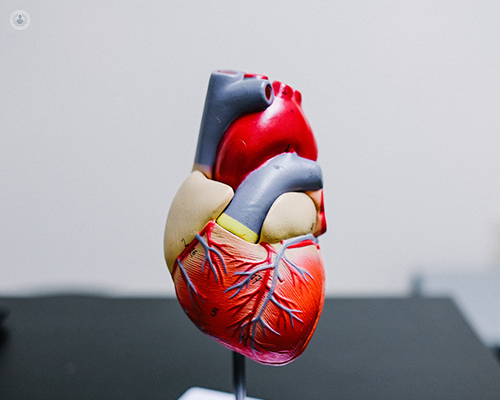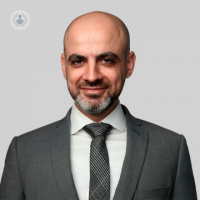Heart failure: when should I start to worry?
Autore:When the heart is unable to pump blood properly around the body is known as heart failure, a chronic condition that occurs after the heart has become too weak or stiff. Dr Fadi Jouhra, highly regarded consultant cardiologist, provides an expert insight into this condition.

What are the early signs of heart failure?
There are several early signs of heart failure. They are often subtle and it is risky to ignore them. They include:
- Fatigue: It is common to experience tiredness due to the inability of the heart to pump well.
- Difficulty walking and exercising: This is another sign where the blood does not reach the muscles fast enough, which causes them to struggle to work.
- Trouble sleeping, or sleeping on extra pillows: Lying flat can make the lungs congested with fluid due to inability of the heart to pump. Therefore, you might require more pillows that will often make you wake up feeling breathless.
- Congestion: This is due to fluid build-up around the body and can cause ankle swelling, coughing and wheezing.
- Palpitation: It feels as if the heart is going fast, pounding or skipping a beat.
- Shortness of breath: This is due to the accumulation of fluid in the lungs, which makes exchanging oxygen more difficult.
Could these signs indicate another heart condition?
Yes, some of these sings can be present in patients with coronary artery disease, especially when diabetes mellitus is associated with it. The reason is that there is dysfunction of pain nerves and fibres in diabetes mellitus, meaning that patients won’t have the chest pain but will feel breathless.
When should I start to worry about potential heart failure?
You should start worrying when you experience some symptoms and you might get one or a few of these symptoms. It is best to have a check once that happens, as it will allow us to confirm or exclude the presence of heart failure.
How will I be diagnosed with heart failure?
You will be diagnosed with heart failure after a clinical examination and a series of investigations. The initial investigations include tracing of the heart (an electrocardiogram) and an echocardiogram (ultrasound of the heart). Usually, with these simple investigations, we are able to reach the diagnosis in most cases, but sometimes extra tests are required.
Can I be cured? Can I exercise?
A cure may be possible when heart failure has a treatable cause. However, for most people, heart failure is a long-term condition with no cure. Having said this, there have been new advances in treating this condition and these new treatments can improve symptoms and prolong life.
You can exercise. For the majority of heart failure patients, this will benefit the heart and actually patients are encouraged to do it. There is strong evidence that exercising can prolong life and it is best if you get advice from healthcare professionals about it. After an admission with heart failure, you will be invited to a cardiac rehabilitation programme which includes exercise that is safe and specific to you.
Dr Fadi Jouhra is a highly regarded consultant cardiologist based in London who specialises in complex cardiac devices and heart failure. If you wish to seek expert diagnosis and treatment for your symptoms of heart failure, make sure to visit Dr Jouhra’s Top Doctors profile today.


